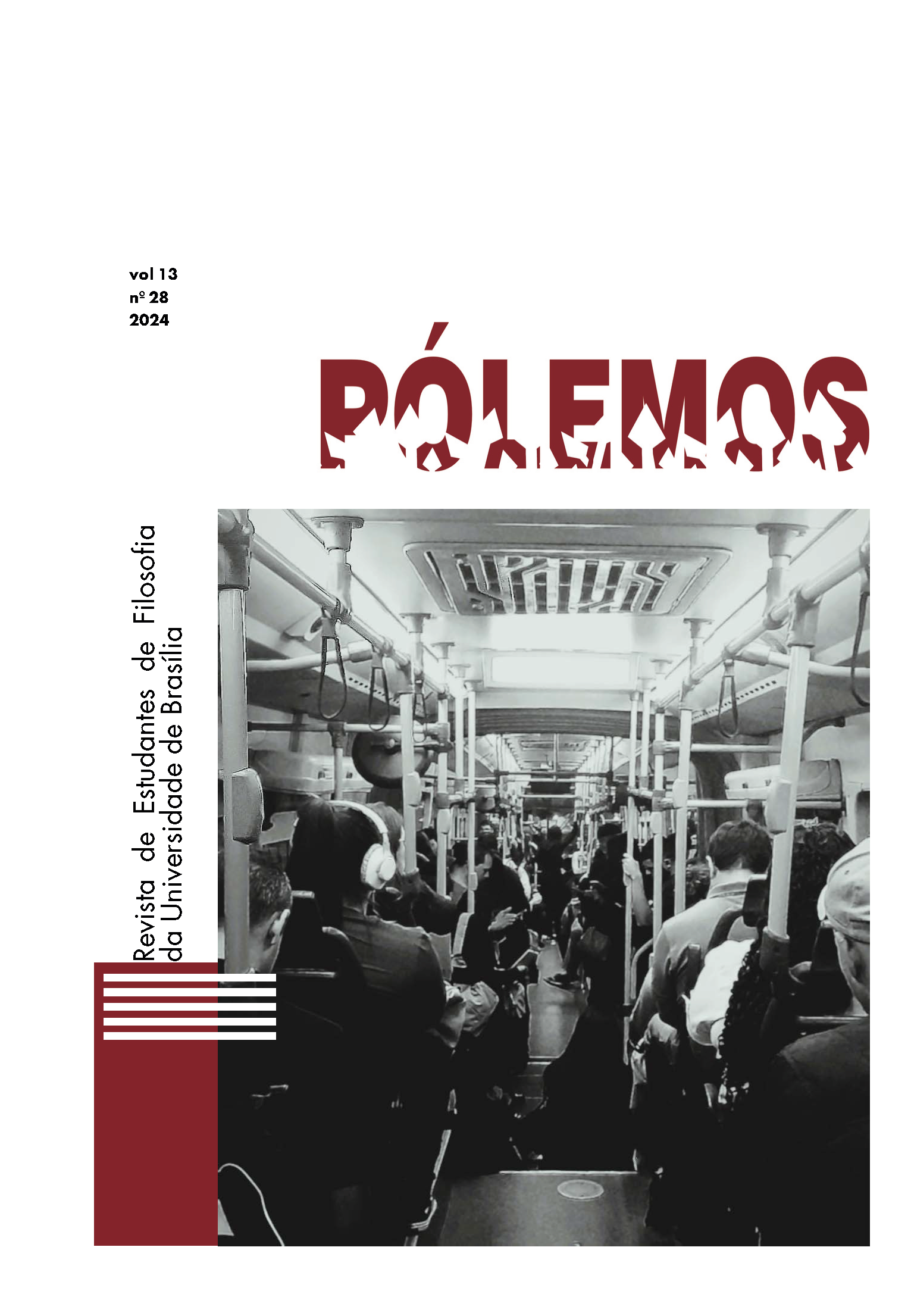THE FORMS OF ALIENATION FROM THE WORLD AND THE EXPERIENCE OF FRIENDSHIP AS RESISTANCE IN HANNAH ARENDT
DOI:
https://doi.org/10.26512/pl.v13i28.54199Keywords:
World alienation. Loneliness. Totalitarianism. Friendship. Hannah Arendt.Abstract
The purpose of this article is to investigate the ways in which world alienation manifests itself in modernity and its respective relationships with the activities of the vita activa: labor, work, action. Each of the human activities whose function is to support, construct and constitute the world carries an ambiguity which, given the articulations and transfigurations undergone since modernity, ends up leading to a state of abandonment and uprooting from the world. The aim of this research is to understand loneliness not as a psychological state, but as a form of being-in-the-world that is specific to modernity. According to Arendt, such basic human experience is the breeding ground for totalitarian movements. As a resistance to loneliness, we evoke the experience of Arendtian friendship which, unlike intimate feelings, refers to the world, contributing to the strengthening of common sense and inviting responsibility and care for the common world and the Earth - the home and dwelling place that must survive the influx of the next generations.
Downloads
References
ARENDT, Hannah. A condição humana. Trad. Roberto Raposo Rio de Janeiro: Forense Universitária, 2004.
ARENDT, Hannah. Entre o passado e o futuro. Trad. Mauro W. Barbosa. São Paulo: Perspectiva, 2005.
ARENDT, Hannah. Filosofia e Política. In: A Dignidade da Política. Trad. Helena Martins, Antônio Abranches. Rio de Janeiro: Relume Dumará, 2002, pp. 91-115.
ARENDT, Hannah. Origens do totalitarismo. Trad. Roberto Raposo. São Paulo: Companhia das Letras, 2006.
ARENDT, Hannah. Diário Filosófico, 1950-1973. Trad. R. Gabás, prólogo de Fina Birulés. Barcelona: Herder, 2018.
ARENDT, Hannah. Sobre Hannah Arendt. Trad. Adriano Correia. Revista Inquietude, Goiânia, v. 1, n. 2, 2010. Disponível em: https://drive.google.com/file/d/0B4AeuuKw4oJnblBFTFVObTlObGM/view?resourcekey=0-pUJUXi-Oo5EMTWiDnWq-sw. Acesso em: 08 fev. 2024.
DIAS, Thiago. Hannah Arendt e o ativismo dos indiferentes. Revista Cult, abril, 2019. Disponível em https://revistacult.uol.com.br/home/hannah-arendt-bolsonarismo/. Acesso em: 10 fev. 2024.
DUARTE, André. Poder e violência no pensamento político de Hannah Arendt: uma reconsideração. In: ARENDT, H. Sobre a Violência. Rio de Janeiro: Civilização Brasileira, 2009, pp. 131-167.
OLIVEIRA, Jelson. Negação e Poder: do desafio do niilismo ao perigo da tecnologia. Caxias do Sul: EDUCS, 2018.
ROVIELLO, Anne-Marie. Senso comum e modernidade em Hannah Arendt. Trad. Bénedict Houart; João Filipe Marques. Lisboa: Instituto Piaget, 1987.
TASSIN, Etienne. Un monde commun: pour une cosmo-politique des conflits. Paris: Suil, 2003.
Downloads
Published
How to Cite
Issue
Section
License
Copyright (c) 2024 PÓLEMOS – Revista de Estudantes de Filosofia da Universidade de Brasília

This work is licensed under a Creative Commons Attribution-NonCommercial-NoDerivatives 4.0 International License.
Todos os trabalhos que forem aceitos para publicação, após o devido processo avaliativo, serão publicados sob uma licença Creative Commons, na modalidade Attribution-NonCommercial-NoDerivatives 4.0 International Public License (CC BY-NC-ND 4.0). Esta licença permite que qualquer pessoa copie e distribua a obra total e derivadas criadas a partir dela, desde que seja dado crédito (atribuição) ao autor / Ã autora / aos autores / às autoras.


